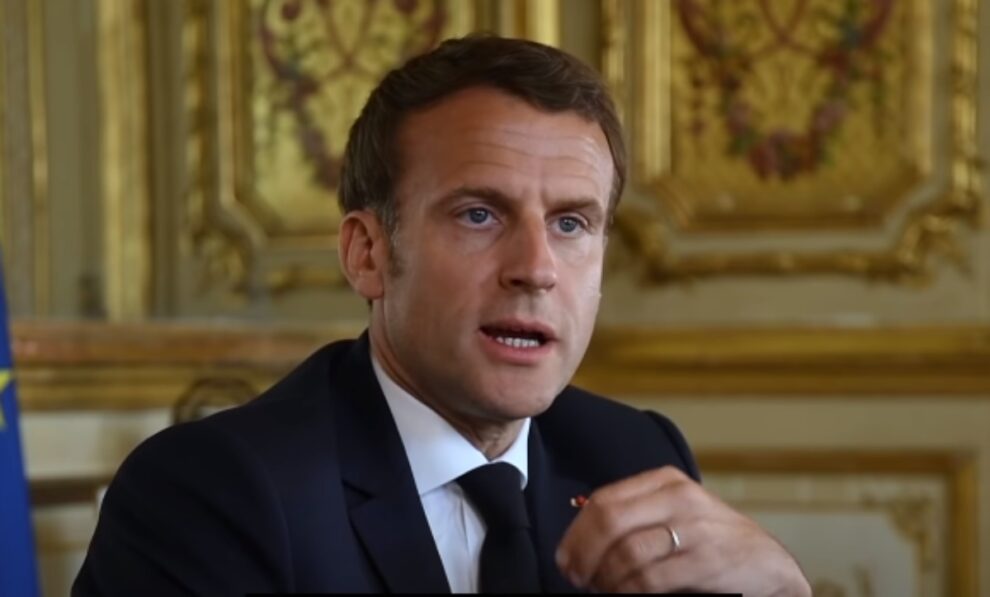French President Emmanuel Macron on Tuesday urged Ukraine’s allies not to be “cowards” in supporting the country to fight off the Russian invasion.
He added that he “fully stood behind” controversial remarks made last week not ruling out the deployment of Western troops to Ukraine, which sent a shockwave around Europe.
“We are surely approaching a moment for Europe in which it will be necessary not to be cowards,” Macron said on a visit to the Czech Republic, which is pushing a plan to buy weapons outside Europe for Ukraine.
Speaking later after meeting his Czech counterpart Petr Pavel, he asked: “Is this or is it not our war? Can we look away in the belief that we can let things run their course?”
“I don’t believe so, and therefore I called for a strategic surge and I fully stand behind that,” Macron said.
Most of Macron’s European allies said they would not send troops to Ukraine after his comments on February 26.
The White House said Tuesday that Ukraine had never sought Western troops.
“President Zelensky isn’t asking for that, he’s just asking for the tools and capabilities. He’s never asked for foreign troops to fight for his country,” National Security Council spokesman John Kirby told reporters in Washington.
Germany’s defence minister said Macron’s quotes were not helpful.
“We don’t need really, from my perspective at least, discussions about boots on the ground or having more courage or less courage,” Boris Pistorius said at a press conference in Stockholm after meeting with his Swedish counterpart Pal Jonson.
“This is something which does not really help solve the issues we have when it comes to helping Ukraine,” he added.
French officials have said that Western forces could be sent to back operations such as de-mining rather than fighting Russian forces.
“We want no escalation, we’ve never been belligerent,” Macron said Tuesday.
– Cash for shells –
Pavel, a former NATO general, agreed that Ukraine’s allies should seek “new ways” to help, adding that the West would not cross “the imaginary red line” by getting involved in combat operations.
He suggested NATO countries could for instance train Ukrainian soldiers in Ukraine, which would be “no violation of international rules”.
The presidents also commented on Prague’s plan to collect money to buy ammunition for Ukraine outside Europe, first presented by Pavel at a security conference in Munich last month.
Around 15 nations have voiced support for the plan to buy 500,000 rounds of 155-millimetre ammunition and 300,000 122-millimetre shells worth about $1.5 billion.
Macron reiterated Tuesday that France backed the plan but did not say how much it might contribute. The Netherlands has already pledged to donate 100 million euros ($108.5 million).
Paris has so far tended to funnel defence spending into its domestic industry, and favoured European weapons production for EU money.
Macron did throw his weight behind using revenues from frozen Russian assets in Europe to fund Ukraine’s defence, estimating them at 3-5 billion euros ($3.25-$5.4 billion) per year, but said the capital should remain untouched.
“We are not in favour of doing things forbidden in international law and opening a debate that I believe would weaken Europe,” he said.
– Nuclear power bid –
Macron and Czech Prime Minister Petr Fiala signed a bilateral cooperation plan for 2024-2028, hailed by the French leader as a “foundation for long-term industrial and strategic partnership”.
Macron also addressed a nuclear forum in the Czech capital, attended by several French energy companies including the power giant EDF, nuclear fuel distributor Orano and nuclear reactor producer Framatome.
EDF and South Korea’s KHNP are in contention for the Czech Republic’s multibillion-euro tender to build up to four new units at its Temelin and Dukovany nuclear power stations.
Macron said EDF’s bid, to be submitted in April, had the “full support of France”.
Earlier on Tuesday, Orano signed a deal with the Czech state-run power group CEZ to enrich uranium for the Dukovany plant, replacing Russia’s TVEL in this capacity.
